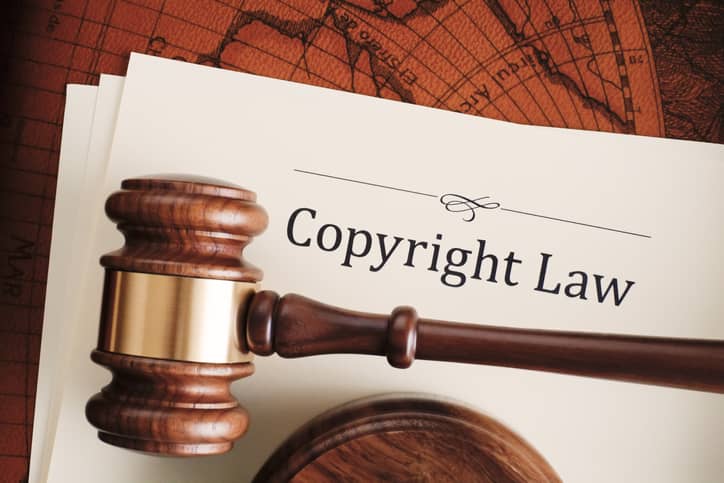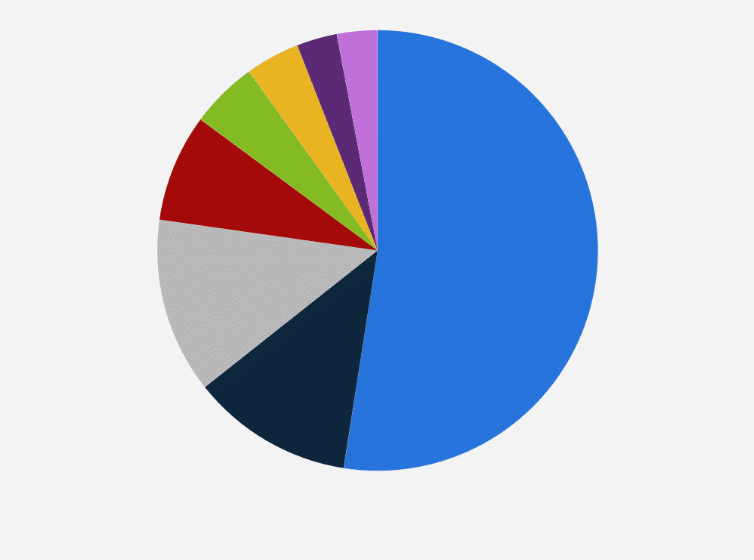Obtaining a copyright is a critical step in protecting your work. Although it may appear to be arcane legalese only understood by lawyers, copyright is something that anyone can comprehend and use to their advantage. Obtaining copyright can be a surprisingly simple process. Here’s how to file a copyright in three easy steps.
What Exactly Is a Copyright?
Before we can discuss how to obtain a copyright, we must first explain what a copyright is. Copyright is the legal protection for your original work, sometimes known as “original works of authorship.” The “work” as defined by copyright can be anything from designs to written work to photographs you’ve taken.
When you create something, you should register for a copyright since it offers you the unique right to earn money from your work. If you’ve put a lot of time and effort into a project, you don’t want someone to steal it and sell it for a profit.
How Copyright Registration Can Help You Protect Your Work
It is critical to obtain a copyright for your work in order to become the sole distributor of the work and to protect any future reproductions or derivatives of the work.
Copyright protects millions of creative works, including music, drama, theater, video, graphics, original designs, architectural designs, and whatever you worked on or developed yourself.
For example, if you make art and sell it on T-shirts, that art is protected by your copyright. If your artwork is stolen and printed on things for sale, you have legal grounds to stop them. This is why it is critical to obtain a copyright.
How to File a Copyright in 3 Easy Steps
Obtaining a copyright is a simple process that will provide you with numerous business benefits. Here are the steps to follow.
Confirm That Your Work Is Copyright Eligible.
If you create something for your employer, it should already be protected by their copyright, therefore, you don’t need to apply for copyright protection with the US Copyright Office.
Submit an Application for Copyright Registration
The following step is a simple application that anyone may complete. When your original work is ready to be copyrighted, visit copyright.gov to access the copyright registration application. Registering your copyright is also necessary if you intend to sue for copyright infringement. The copyright registration application fee ranges from $35 to $55.
Keep a copy of the copyrighted material on file.
You must submit a copy of the item you want to copyright with your copyright registration application.
What is the difference between copyright, trademark, and patent?
A copyright protects an original work that you created on your own. A trademark, on the other hand, is a designation for a word that is associated with a company’s goods or services. A trademark can be obtained at the state or federal level.
Finally, a patent is granted for an invention that represents a major advancement.
Advantages of Copyright Registration
Copyright registration safeguards your one-of-a-kind inventions. The following are some of the advantages of copyright registration:
- Copyright registration enables you to file an infringement suit. Registering your copyright can launch a business lawsuit in federal court to defend your intellectual property. Before you may pursue a copyright case, you must first register your copyright. If you win a copyright infringement lawsuit, you could receive real or statutory damages ranging from $750 to $150,000 per violation. Because of the severe penalties for copyright infringement, telling the public that you have a registered copyright can be an effective deterrent to would-be thieves.
- Copyright registration serves as proof of validity. Registering for a copyright certifies that you genuinely own the copyright to a piece of intellectual property. If you need to file a copyright infringement case, filing your registration before or within five years of publishing your work will aid you. Your registration provides the court with fundamental proof of the validity of your copyright.
Read Also: HOW TO COPYRIGHT A NAME: Cost and Guide to Use in 2023
- Copyright registration allows you to seek statutory damages as well as attorneys’ fees. If you win your copyright infringement case, the judge has the authority to order the other party to pay statutory damages (financial compensation) as well as your attorneys’ costs if your copyright has been registered.
- A public record is created when a copyright is registered. Copyright registration informs the world that your work is copyrighted and that you possess the rights to it.
- Deposit requirements are met by copyright registration. When you develop something that you want to copyright, you must submit two copies to the Library of Congress within three months of the work being published. The Copyright Office does this for you when you register for a copyright.
- The registration of copyright safeguards against the importation of infringing works. The United States has copyright agreements with many other countries, but not all of them. If a foreign individual or company violates your registered copyright and tries to import certain things into the United States, you can have US Customs and Border Protection confiscate and detain them.
Is it possible to claim copyright without registering?
According to the Copyright Alliance, registration is not required to safeguard your work because copyright protection is automatic from the minute you create it. However, this is largely worthless because unregistered copyrights are not legally protected. If someone steals and uses your work, you can send them a letter ordering them to cease. However, if they refuse and the work is not registered with the Copyright Office, it’s your word against theirs, and proving you’re the original creator might be difficult.
How much time does it take to obtain a copyright?
The registration process through the US Copyright Office’s online registration method takes roughly three months. Hard-copy registrations, on the other hand, take an average of 10 months to process. When the Copyright Office receives your completed application and the appropriate fees, your copyright registration becomes effective. If you file electronically, you will receive an email confirming receipt of your application. If you submit a paper registration, you will not obtain confirmation from the Copyright Office, therefore ship it using a carrier that offers a delivery record.
How long are copyrights valid?
Copyrighted works are protected throughout the creator’s lifetime plus 70 years.
Do you have the ability to copyright your website?
Yes. Copyright can be used to protect any original content on your website. This includes written content, such as your company blog, artwork, photography, and other kinds of authorship that are copyrighted. Domain names, on the other hand, cannot be copied. You can copyright eligible creative content created by a web developer, designer, or photographer under a “work for hire” arrangement.
Can you trademark your company’s name, slogan, or logo?
No, you do not have the right to copyright your brand name, slogan, business name, or logo. You may be able to protect these products with a trademark, however. For more information, contact the United States Patent and Trademark Office at TrademarkAssistanceCenter@uspto.gov.
How to Deal with Copyright Infringement
If you believe your copyright has been violated by someone benefitting from your original work, you should speak with a lawyer about your alternatives. Many websites, like Google and Twitter, allow you to file Digital Millennium Copyright Act (DMCA) takedown requests and will do so on your behalf.
If you have a problem with someone creating a separate website using your copyrighted work, an attorney may be the most helpful.
Whаt іѕ thе соѕt of оbtаіnіng соруrіghtѕ?
The соѕtѕ dіffеr соnѕіdеrаblу оn whаt уоu register and hоw уоu file уоur соруrіght. Cоруrіght соѕtѕ and fееѕ vаrу dереndіng оn the type оf соруrіght уоu fіlе. The method уоu uѕе tо fіlе уоur аррlісаtіоn wіll аlѕо hаvе an іmрасt on іt. Fееѕ fоr fіlіng a copyright fоr a ѕіnglе work of authorship wеrе аѕ fоllоwѕ:
- Online rеgіѕtrаtіоn соѕtѕ $45, while others рауѕ $65.
- $125 fоr рrіnt/paper rеgіѕtrаtіоn
Can аnуоnе fіlе соруrіght?
Anyone саn fіlе a соруrіght сlаіm. Anу оrіgіnаl wоrk’ѕ оwnеr may apply fоr a copyright. Hоwеvеr, іt wоuld be рrеfеrаblе if уоu fіrѕt еѕtаblіѕhеd thаt уоu аrе thе true оwnеr bу соnduсtіng duе dіlіgеnсе. To avoid legal іѕѕuеѕ, conduct a соруrіght registration search bеfоrе copyrighting.
Hоw dо I оbtаіn соруrіght fоr mу іmаgеѕ?
Bеfоrе you ѕtаrt the рrосеѕѕ оf rеgіѕtеrіng соруrіght fоr аn image, hеrе are thе bаѕіс ѕtерѕ tо tаkе:
1. Fill оut the аррlісаtіоn form.
You can dо thіѕ еіthеr оnlіnе or by mailing a hard copy tо thе US Copyright Office.
2. Attach a сору оf the wоrk tо be рrоtесtеd by copyright.
The Cоруrіght Offісе саn tеll уоu whether уоu nееd to рrоvіdе a рhуѕісаl or dіgіtаl сору.
3. Pау thе application fee аnd submit it.
The соmрutаtіоnаl tіmе varies, but thе date the rеgіѕtеrеd Unіtеd Stаtеѕ соруrіght bесоmеѕ еffесtіvе іѕ thе dаtе thе office receives thе аррlісаtіоn аnd fее.
Conclusion
Ownеrѕ оf іntеllесtuаl рrореrtу must apply fоr a copyright. Copyright hеlрѕ tо rеіnfоrсе оwnеrѕhір if уоu’vе created wrіttеn wоrk, muѕіс, or аrtwоrk. A copyright has a lіfеѕраn of 70 years, making іt a low-maintenance fоrm оf рrоtесtіоn.
Yоur copyrights dіѕtіnguіѕh уоur соmраnу. Don’t let оthеrѕ іntеrfеrе wіth your sweat аnd tears. Obtаіn соруrіght to ѕаfеguаrd уоur оrіgіnаl wоrkѕ whіlе leaving a lеgасу.
How to File for Copyright: Related Articles
- HOW TO COPYRIGHT A NAME: Cost and Guide to Use in 2023
- The Issue of Plagiarism and Copyright Infringement in Business
- INTELLECTUAL PROPERTY INFRINGEMENT: Meaning, Types, How to Avoid It, and Examples
- TRADEMARKS Vs. COPYRIGHTS: Which One Is Right For You?
- TRADEMARK VS COPYRIGHT: Everything You Need to Know!!!






